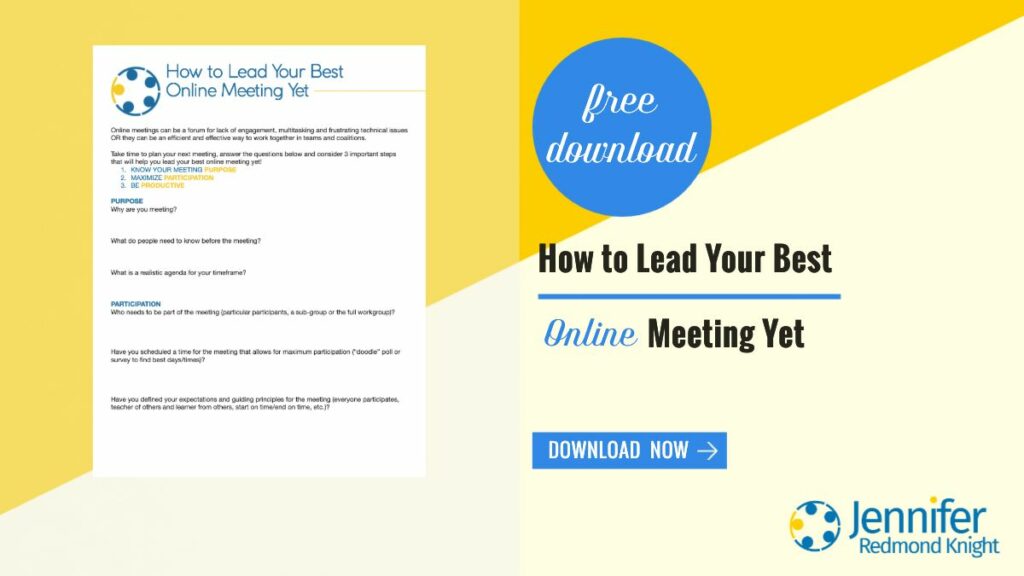If we schedule every meeting for an hour and we fill up that time with conversation, we may never have a meaningful break and can easily experience meeting fatigue. In my experience, most of my colleagues and coalition members want to schedule one-hour meetings. While many meetings need to be an hour – or longer – I think we can all appreciate meetings that are shorter than an hour. As we continue our conversation related to facilitating online meetings, let’s explore three questions to ask to help us decide the right meeting length for our online meetings.
Why do we need to meet?
As we plan any and every meeting, we need to keep coming back to our meeting purpose. When purpose is our foundation, we can then determine how long the meeting needs to be in order to accomplish that purpose. While we may be diligent about defining our purpose for the meetings that happen 3-4 times per year, we sometimes forget to ask this question for our standing meetings. One of the most challenging aspects of standing meetings is that we have blocked that time on our calendar but may not be diligent about the purpose for each of the meetings. If time on our calendar drives our meetings, we will end up spending lots of time in meetings and may not always know why we are meeting. Although you may have a similar topic, take time before each meeting to really consider the purpose of that specific meeting. Our purpose may also guide us toward less frequent meetings. Rather than every week, perhaps we can meet every other week and still fulfill our purpose.
What can only be done during a meeting?
Once we have clarified our meeting purpose, consider what needs to happen before, during and after the meeting. If we protect time during the meeting to do what can only happen when the group is together, we are more likely to have shorter and more effective meetings. Sending emails, providing updates and re-hashing the same conversation you have had several times creates weariness and is not the best use of meeting time. Alternatively, highlighting challenges, discussing collective solutions and making decisions are examples of things that can best be done during meeting time.
Who is participating in the meeting?
If you have a brand new group meeting together, you may need more “meeting time” to accomplish your work together than if you were a group meeting together for a long time. If you have a group that is having some relationship challenges or trust issues, you may need to do more work during the meeting together to also build trust in the process. Some folks will work best in a “meeting setting” than working on their own so perhaps you have very small group meetings focused on a particular project. Other folks will work much better on their own, and need time to work on things by themselves before coming back to the overall group. While the answer may be variable, asking the question about participation is very important so that you can make the most of your meeting time together and decide how much time you really need.
So what about you? Do you think any of your meetings may be able to be less than an hour? Why or why not?
As you plan your next online meeting, check out my free resource, How to Lead Your Best Online Meeting Yet

Photo by Malvestida on Unsplash
